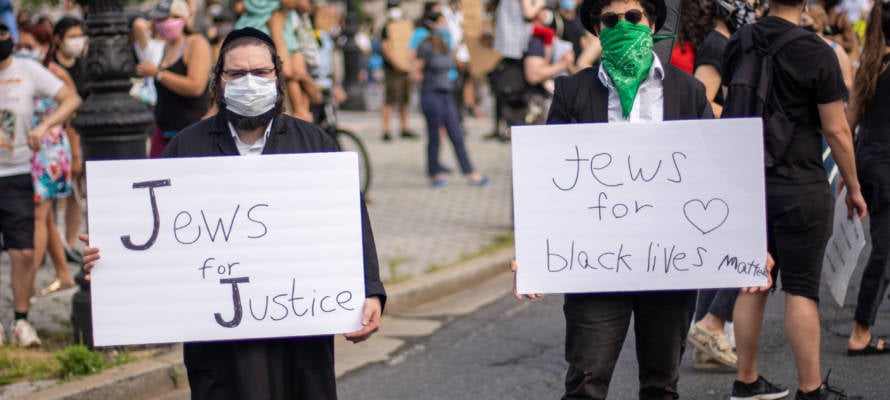Jews are learning about black versus white socio-economic issues, but this movement can have anti-Semitic undercurrents.
By Lindsay Soberano-Wilson, TheJ.ca
As a public high school teacher, I have seen buzzwords come and go. From literacy and numeracy, to universal design—and now with the tragic murder of George Floyd—anti-Black racism is front and centre. And it’s about time. In fact, a few years ago, a troubling trend was discovered in the education: people of colour were less likely to go to university. Instead, they were pushed into the applied/college pathway.
The study “Towards Race Equity in Education: The schooling of black students in the Greater Toronto Area” (James & Turner 2017) showed that 53 per cent of black students were in academic programs, compared to 81 per cent of white students; conversely 39 per cent of black students were enrolled in applied programs, compared to 16 per cent of white students. The only way to remedy this systemic barrier was to delay pathways: to ensure students can experience academic studies in grades 9 and 10, and choose the workplace, college or university pathway by grade 11.
While teaching equity and diversity has been a mainstay, now educators are realizing they must do more than trade in To Kill a Mockingbird for The Book of Negroes. Now educators are being asked to dig deep and face their own prejudices. And in turn we are being asked to teach this process to our students.
But this work gets messy. For instance, during a professional development session just before the winter holidays, we discussed a chapter from Deep Diversity by Shakil Choudhury. As a predominantly white staff, we learned more about “white privilege.” It was becoming clearer to me just how it would feel to walk in someone else’s skin tone. But then something was said that made me question how it is we can even begin to do this work.
The leader of the session commented on how the black community never had the luxury that Jews do of being an invisible minority. Yes, suddenly we were talking “Jew privilege.”
And there’s nothing “luxurious” about being a Holocaust survivor. There’s nothing luxurious about being subjected to anti-Semitic slurs, because others can’t tell I am Jewish. There is nothing luxurious about feeling uncomfortable wearing a kippah or a Star of David. Didn’t my superior know that the word luxury feeds into stereotypes that Jews own the banks and the media? And didn’t she know that Orthodox Jews are visible. Or that Jews come in all shades, ranging from white to black. In fact, I resent being told that I am white. My paternal side of the family is from North Africa.
Suddenly I felt like I was being cancelled out, to suit someone else’s agenda. And this is what I fear: that a single narrative is emerging whereby Jews are not seen as allies. And we have already seen the fallout of the tragedy of George Floyd: everything from the vandalism of synagogues, to conspiracy theories blaming Jews, to flyers promoting “Jew privilege” in American universities. Heck, even the leader of Black Lives Matter called for an attack on Jewish businesses in New York City.
I do not think many of my colleagues think about the unrest between the black and Jewish communities, which came to a head in New York, with the attacks over Chanukah 2019, including the brutal stabbing and eventual death of Rabbi Josef Neumann. I was shaken up by the daily attacks on Jews, and I received no such message of solidarity from the Toronto District School Board.
Actually, when I speak up on social media about the recent fallout of the Black Lives Matter movement on the Jewish community, I am told by some fellow Jews that this is not about me. And to take a back seat. And yet here I am.
I will continue to speak out for my Jewish colleagues and students to address inequities. Being an ally of the black community does not mean I have to accept violence or anti-Semitism.
As for how this all ended? I spoke with my colleague, and explained how her comment was hurtful, and she did indeed make a formal apology at the next staff meeting. But I can’t change how I felt in that room on that day. And I can’t help but think that was just the beginning.
